The word generation is used to describe social/societal norms based around age groups of American people. It holds the idea that generations have differed greatly in ideals, desires, and personalities. It is non-exact, and many of the generational titles are appropriately based out of pop culture, which is frequently the best barometer to gauge a generation. A generation doesn't really rely on when a group of people were born, rather a temporal diameter surrounding the age of eighteen, when they become a voice in the world and workforce, and what went down during their formative years. It is dependent on those people of that age experiencing the same or similar world events and developing similar subsequent views. One can better be ascribed to a particular generation if they experienced these crucial events in whatever way, rather then having been born BETWEEN a fifteen - twenty year window, the youngest of which would not have any similar generational traits as the oldest in that demographic. Also, simply falling within birth parameters doesn't guarantee similar experiences or worldviews, rendering one generationless, or at least at odds with one's own generation. Often embracing one's own generation is tacitly rejecting the previous, while the opposite is also true, the previous generation sectioning themselves off from the younger, "inferior" generation. As it is an extremely general way of talking about people, any generational labeling will never really fully accommodate any one real person, they are just reflections of ideological trends.
Lost Generation - Aged 108-125
Though American generational studies begin at the Revolution, the idea first gained mass popularity with the pop-culture before it was called pop-culture classification of the Lost Generation. These are people born between 1883-1900, but best describes those who where of age directly following World War I, or during the last part of it. The term Lost Generation was coined by Gertrude Stein and popularized by Ernest Hemmingway in his epigraph to "The Sun Also Rises." Not many social reformers, Lost Gen was artistically based in literature and criticism. Specifically, it refers to a group of American expatriates living in Paris, all literary big wigs like Hemmingway, F. Scott Fitzgerald, T.S. Eliot, and Ezra Pound, but these things include people who never even knew they were included. It refers to anyone of this time period, between the war and the Great Depression, who began rejecting pre-war thought. That is, they found the large number of casualties in the war disillusioning and they began rethinking many norms, questioning previous Victorian notions of morality, propriety, and even gender roles. Of course the core of this generational ideal were privileged bohemians, living in Europe, but their influence and divergence from their elders' ideals marked the first noted generation gap in U.S. history, and they were famous representatives of all those sympathetic to the new way. Culturally, this generation made it's name, not only through literary proliferation by people who claimed literature had nothing left to accomplish, but especially through the beginning of jazz music, continentally, which was the first purely American art form. Fitzgerald's "The Great Gatsby" was a progress report/critique/cultural mirror to his own generation, a.k.a. the Jazz Age. Also, William Faulkner and John Steinbeck represented this generation in America, and James Joyce joined in out of Ireland, cementing the connection between modernism and the Lost Generation. During this time world-wide, "The Adventures of Sherlock Holmes" and "Dr. Jekyll and Mr. Hyde" were first published, and Vincent Van Gogh painted "Starry Night," as seen in dorm rooms to this day. What really sets this generation apart from its predecessors like the Revolutionary Generation or the Abolitionist Generation is that it was given an abstract name while still fully functioning. Very few of the Lost Generation are still living today, but did include Dwight Eisenhower, Harry Truman, Alfred Hitchcock, Earl Warren, Mae West, Norman Rockwell, Babe Ruth, Shoeless Joe Jackson, Knute Rockney, Buster Keaton, George Burns, Groucho Marx, Jelly Roll Morton, etc...
Greatest Generation - Aged 84-107
Next came the Greatest Generation, so dubbed by Tom Brokaw post hoc, decades later, was known originally as the G.I. Generation. Defined as those born between 1901-1924, these are the people who lived through, fought in, and experienced World War II as adults, and includes Ronald Regan, George H.W. Bush, Richard Nixon, and Jimmy Carter. They are defined with self-sacrifice and morals, believing not in fame or glory, but in the moralistic necessity to fight WWII. They are reliable with a strong work ethic, nurturing and willing to delegate responsibility. They have a strong sense of civic duty and believe in teamwork to progress and succeed. They are concerned with personal morality and have black and white versions of right and wrong. They believe in their crew, be it loyalty to job, school, country, or spouse, which they believed was theirs until death did they part. Their motto could be "use it up, fix it up, make it do, or do without." They actually made America better to live in. Celebrities of this generation include Guy Lombardo, Bing Crosby, Lou Gehrig, Milton Berle, Henry Fonda, Greta Garbo, Tennessee Williams, Frank Sinatra, J.D. Salinger, and Jackie Robinson, not to mention Superman in the daily comics, symbolizing unstoppable energy and possibility if true and good. These people are today's grandparents and great-grandparents, responsible for the prosperity of the 1950's, developed into the "Establishment," and most notably were responsible for the "Baby Boomer" generation, the massive amounts of kids that everybody had following the war's end. The gap between the Greatest and Boomer generations would be the most pronounced ever.
Silent Generation - Aged 63-83
Following these heavy hitters came the "Silent Generation," born between 1925 and 1945, too young to serve in the Second World War, they came into adulthood directly following it. Research found the generation to be grave and fatalistic, conventional, possessing confused morals, expecting disappointment but desiring faith, and for women, desiring both a career and a family. They are especially noted for working hard and saying little, they were withdrawn, cautious, unimaginative, indifferent, unadventurous and silent. They are the children and grandchildren of the Lost Generation and occasionally parents of Generation X. This is the first example of a generation "stuck between," admiring their Greatest Generation elders and succumbing to the social explosion of the soon to follow Boomers. They are the current "old people," redefining old as "older than them," counting presidential candidate John McCain in their ranks. Fellow Silent Generationers (which don't seem to fit the mold) include RFK, MLK Jr., Elvis Presley, Woody Allen, Sandy Koufax, Wilt Chamberlain, Hank Aaron, Jerry Fallwell, Maya Angelou, Lee Harvey Oswald, Clint Eastwood, Marylin Monroe, Andy Warhol, and Johnny Carson. They are a generation of helpers, active in the Civil Rights movements but no major wars. And a generation of artists, Boomer icons, the Beatles and Bob Dylan were also of the Silent Generation.
Baby Boomers - Aged 55-62
Then the big one, in the nearly two decades following WWII, birthrates rose annually and a population boom ensued between 1946 and 1964, topping out in 1960 and done by '64 when the birth control pill was widely used. The resultant "Baby Boomers" would reshape America more than any generation prior. With this many people being born, a strong American economy was sure to benefit, and for the first time, a generation became a demographic. Very importantly, it should be noted that the "Baby Boomers" should be divided in a way that better reflects what generation has come to mean, and the year 1953 is a good cut off to reflect the different formative experiences which gave rise to dramatically different collective personalities between these two subdivisions. This can be reduced to whom out of these Boomers took part in the cultural cliche that was the American 1960's. Well, if you were a teenager in the '60's born prior to 1955, you were in high school during the "Summer of Love," and before 1973 you were subject to being drafted into the Vietnam War. Born after 1955 you were never subject to the draft and came into adulthood without the issues and environments it entailed. This crucial event separates later Boomers into what they call "Shadow Boomers," part of the same population increase but ideologically and culturally different. The cusp of these two could always overlap due to circumstance: family, location, etc... This is very important for properly identifying the generations of these two's progeny, and perhaps analysing and sub-categorizing the cusps of each.
Due to their size, Boomers in general were the first generation to be marketed to, from birth, and in such a way pandered to and ego-stroked as a generation. This, along with being the first generation to be raised with television in the house, and all that entailed, gave these kids around America a homogenized version of what their generation was/could or should be delivered to their houses all day long. Also called the "Me Generation", youth was idealized, in the spotlight, and marketed to, and youth culture responded amazingly, optimistically. Major U.S. events throughout the '60's were televised, the Moon Landing, assassinations of JFK, RFK, and MLK Jr, death counts in the Vietnam War, and the Brady Bunch could all be seen by every kid in the country, all at the same time. Someone fifteen years older than you did not have that. And of course, Elvis and then the Beatles and the Jackson 5 on Ed Sullivan, etc... young people turning into adolescents and adults across America had their own music for the first time, which expressed ideals explicitly differing from their Greatest Generation parents. These kids watched civil rights being fought for on TV, and in some cases participated, and were in on the ground floor of the sexual revolution, young teenagers with the pill, so all sexual norms were on hiatus. Economically, they buy with credit. Socially they are interested in positive change, but grew to be too busy to affect it. Maritally, divorce rates sky-rocketed. Good drugs like marijuana and LSD were used in explosive numbers by the Boomers, and eventually hard drugs began to be used by white, middle class Americans, changing the drug landscape within ten years from optimistic and naive to dangerous and scary. Either way, the drug and youth culture was the first full-blown counter culture in American history.
Shadow Boomers - Aged 44-54
The Shadow Boomers, coming of age in the later sixties and early seventies, through the same medium, would experience the Watergate Scandal, Nixon's resignation, the Cold War escalating, raging gas prices, heroin-addicted Vietnam vets, etc... and be afforded a darker, more cynical take on a similar arena, knowing the security of their youth, but becoming an adult as the price is being nationally paid. Much criticism has been paid to the Boomers, due not only to their inevitable self-entitlement, or their unprecedented financial success, but also to their pronounced values shift. As early wave Baby Boomers reached full adulthood and middle-aged, their liberalism, which garnered social advances in civil rights, gay rights, women's rights, and the right to privacy, wore off and they fell back into a more conservative mode, mirroring their parents more that they would like to admit. Drug laws in America remain racist, persecutionatory, and illogical. To be fair, much of this criticism was offered by cohorts of Generation X, outspoken in their differences from their parents, the Boomers, who in turn, accuse Gen X of slackerism. Our last two presidents, Bill Clinton and George W. Bush are both Baby Boomers, born within sixty days of each other in 1946. These people are the known adults of today, and include Michael Jordan, Oprah Winfrey, David Letterman, Bruce Springsteen, Robert DeNiro, Bill Murray, Reggie Jackson, Madonna, and damn near everybody else. Being as the Baby Boomer generation spans so much time, it's cohorts are very different. The very tail-end Boomers, born in the mid sixties and round-about 16 years old in 1980 would be near indistinguishable from Generation X, just a little groovier, with hippie older cousins to supply them with crummy pot, and the dawning of the Arcade and Atomic Ages. Or perhaps it's actually early Gen X that's indistinguishable from late-Bloomers, slightly older and wiser than full-blown 1991-style Gen Xer's, but basically into the same stuff. That is a fertile area of neglected cuspers without mental bondage caused by attention or aspiration, with potential for greatness, see "Over the Edge" or "Rock and Roll High School"
Generation X - Aged 29-43
Now, the very first wave Boomers (and late Silent Generationers) started to have kids, but not that many, and all the cultural-generational pandering that happened to their parents happened to them ten fold. Originally dubbed the "Baby Busters" because the marked the settling back down of U.S. birth rates after twenty years. Born roughly between 1965-1980, the first hallmarks of Generation X are always overt cynicism and blatant rejection of Baby Boomer ideals, seemingly always worried about some phantom punishment that may or may not occur. Specifically, Boomers were greedy 80's fucks at this point, and their kids hated them for it. Of course, Gen X would show their true colors as more interested in comfort that philosophy, driven by appetite, not ideas. The real distinction between X and the Boomers is that the Boomers acted like they had all high ideals but were actually shallow, while Gen X poses as entirely shallow while secretly desiring ideals. But the world was too sweet a place to worry about that stuff, and when spoiled kids have it too good, they get obnoxious. There was MtV, a two-four person family, and everybody was going to college.
Generation X actually should refer to those who were teenagers in the 1980's, marked by the sexual devolution brought on by the AIDS epidemic, the Reagan Administration, the end of the Cold War, drugs in schools, and the fall of the U.S.S.R., and in their twenties in the 1990's when they began defining their own culture, to an extent, marked by corporate downsizing, a reduction of state funding by the government, and an increased interest in sustaining our environment. No one born after 1977, hence not experiencing the 80's as a teenager, should be regarded as Generation X. Regardless, for a brief time from roughly 1988 - 1993 American media was filtered through a Generation X lens. The Lollapalooza Festival gathered these people who looked like hippies yet somehow hated hippies, and "Smells Like Teen Spirit" in some way voiced their inner inability to rectify themselves with themselves or something. Clothing styles and labels took the place of meaning for these iconographic people. This generation were ushered into existence in the mid-seventies with "Rosemary's Baby", celebrating the dark-devil children. By the time they were teenagers, they had elevated sarcasm and cynicism to an art form, literally. Pop-rock music was the primary medium and the media dubbed the heavy sound "Grunge." Ironically, grunge music betrays Gen X's false desire to not be like their Boomer parents, older cousins, and jerks they knew. The music of the generation merely apes the worst "classic" rock on their early youth. Nirvana and Pearl Jam reduxed Jimi Hendrix and Led Zeppelin for a new audience, claiming originality and youth. As someone born directly after these cats, I think this is pretty indicative of their world-view: ultra-individualistic, just like everybody else. Their values are relative, not even attempting a universal truth. Movies like "Singles" and "Reality Bites" glamorized the pseudo-slacker lifestyle while standing hip-deep in retro-kitsch. Their flannel and lack of showering was kabboshed one April afternoon, when their generational spokesman, Kurt Cobain, couldn't take the hypocrisy anymore and blew his brains out. A mass adultization occurred and damn near every one of those mean teenagers I knew grew up and got jobs... online. Strangely, they were adept, for a short while, at piling up tons of stock and seemingly rivaling the Boomers, yet again, this time for selling out into financial freedom. True to their fuck-up tendencies, however the bubble burst and no one really had any money, most of them settling into regular office work, programming for Microsoft and Apple, wearing ties and short haircuts. Gen X celebrities include Molly Ringwald, Leonardo Dicaprio, and anyone from Seattle.
An easy interpretation of the next generation is to simply call them the Echo Boom, the massive children of the massive children, or logically, Generation Y. I think that this is a blurry area, and calls into importance the cuspers... many people are born between generations, the important world events, etc... taking place at a slightly different time in their development. For instance, first wave punk rockers are not exactly first wave boomers, nor are they Shadow Boomers. They fell through the cracks. It is my interpretation that most sincere and culturally significant movements are made by near anonymous cuspers. Richard Hell was born in 1949 and found himself wedged between his (in his eyes) out of touch hippie elders and the massive youth. He wrote his anthem "Blank Generation" not to purport vapidity, but self-determination. Not blank as in empty, blank as in FILL IN THE BLANK. I fall within another Blank Generation, squeezed in between X and Y, with only myself to tell myself what to be, believing neither that cynicism nor Mountain Dew will save me.
Generation Y - Aged 14-28
Generation Y is comprised of those born in the 1980's and first half of the 1990's, today's twenty-somethings. They are the Echo Boom, the meat of the Baby Boomer's Kids, except they like their parents. Shadowed by the cleverly nicknamed iGeneration, they came of age as the internet and global communication came to fruition, and experienced the 9/11 attack in their teens. These people are the real monsters the older Boomers imagined flaccid ol' Gen X to be. Actual Future People of Tomorrow who needn't borrow from any previous generation's anything, least of all culture. Due to mass communication, Gen Y is defined as peer oriented and public, trained to expect instant gratification. YouTube and reality television have redefined fame right in front of their eyes. This set-up (and being that huge Echo demographic) makes the marketing to these people more thorough than any other in history, see Generation Next, Spice Girls, Pepsi Generation, and many, many more. This generation is marked by the tendency to live at home for much longer than previous generations, and even return home after several years of trying it alone. Also interesting is the tendency of this generation to shift jobs and even careers frequently. Education is at an all time premium for these people, and their parents try to be extremely involved in it, even though fewer Generation Yers come from two-parent houses than any previous. Due to the span and number of kids that Boomers had, many Gen Y kids have Gen X siblings. Most Gen Y cohorts seem to like their families but place little value on maintaining one. Gen Y has high expectations for their workplace and expect to be happy with what they do. Gen Y celebrities include Mary Kate and Ashley Olson, LeBron James, and Britney Spears.
Gen Y is desribed as "overachieving and overscheduled" multi-taskers who are highly success oriented. So far, the generation is defined by technology, not art or culture, if they have anything, it's a new kind of mass junk-culture, a mind-bend/blend of Mad and People Magazines, nor economics, for they are not yet vocal in legislature and primarily spend online, because real-space purchasing uses too much gas. Their is no real economy to speak of for them yet. Also, sexual mores are of little concern to the generation, not too scared of AIDS anymore (they were inundated with safe sex talk since the beginning), sex is good with all, romance is factored in with few. Finally this generation is ground-zero for the Culture War in America, their oppinions being the spoils of the Boomer's Conservative/Liberal battle. The upcoming election will be the best barometer to date on the role of Generation Y in politics and legislature, with the influence of online/e-campaigning in a pivotal elction, the first they will be fully represented in. Will they carry the hallmark of youthful idealism like the Boomers, the feigned apathy of Gen X, or truly rebel and conserve, conserve, conserve? Gen Y is marked by isolationism, not concerned with history and convinced (short-sightedly) the future is now. Perhaps the entire generation is on a cusp between pre- and post- world wide web, remembering being told the truth at some point and what it would sound like if they were told it again, maybe they can remember and tell it themselves, or to themselves... Maybe a few have become enlightened already, recognizing their crux on the timeline of humanity and Americans, and maybe the rest will follow, becoming truly modernist and employing what has worked and disregarding that which hasn't, or maybe they'll just fuck it up and jump on in the ol' machine.
Generation Z - Aged 0-13
Finally we're at the current young people, Generation Z. These kids are digital natives, born into a world were the internet and all were already in place, they never knew it any other way. If they watch tv, it is reality tv, all sitcoms only in re-runs. If they read, it is on a computer monitor. They were too young or not born yet to assess what happened on 9/11 and their America is a frightful place. For all they know, there really is a War on Terror! They are anti-social and sleep-deprived and have retreated into cyber-space and absolute instant gratification. They are massive consumers, spending their early Gen X mommy and daddy's cubical money on whatever the internet will sell them. True to their embracing of the "Leave It to Beaver" world they feigned rejection of in their teens, Gen X parents engage their Z's in high levels of structured activity, no slackers here. They won't smoke cigarettes but are addicted to cell phones. The classification of "Z" seems incredibly arbitrary, following the meaningful X and the convenient Y, indicative of the fact that people are ready to name you the second you're born if it means they can sell you something. Gen Z is expected to be a "hero" generation, perhaps fixing all the problems amassed by its predecesoors, especially those wacky Boomers, who are these guy's grandparents. Gen Z houses the final product of exponential entitlement as witnesses through XYZ and before. Hyper-nurtured, Gen Z is experiencing the most "kid-friendly" America since the 1950's, catering to their safety and security while disregarding their education and minds, setting up a generation ready to buy their way out of danger for years to come. Art and culture have no real place for these people. They will either be the most under-educated and hence conservative generation in sixty years or they will rebel against it, educating themselves and fighting the preconceived generational norm they don't deserve. For a generation that will undoubtedly be tied into online issues, it is Generation Z's existential duty to ensure those issues include truth and beauty and not just a deluge of anti-information. This is the first generation that has had to carry that burden.
The more perspective one gets on current/living generations, the more one realizes that generational tags should not be responsibly commited until much later, possibly generations later. You can't tell how a generation will truly be defined as it unfolds. What's more, generational icons are frequently those who buck the statistics and norms and define themselves outside of what history will say about their generation, usually someone on the cusp. You don't really hear about the round pegs that make up the data, rather the square peg that refutes it. Jack Kerouac cusped the Greatest and Silent Generations and embodied something wholly other to what those Generations would stand for. He created a sub-division, the Beat Generation. Much like the original designation of the Lost Generation, the Beat Generation applied directly to a group of New York writers (Kerouac, Allan Ginsberg, and William S. Burroughs) who celebrated non-conformity and spontaneous creativity, much at odds with their conservative peers. To Kerouac "beat" symbolised being on the bottom looking up. When it comes down to it, this is the view of the individual, not a parcel of datum. Would you rather be in a People's History or a census form? The Ramones couldn't fit into any ol' box at all, cusping Boomers and their Shadow, their ideals were esoteric, world-redefining, and life-saving. Ben Weasel spit in the face of Generation X with everything he did. And today, I stand before you generationless. Disgusted by the hypocrisy of Gen X, who had the world on their doorstep and mugged insted of grasping and running, and alienated by Gen Y and their conventional, utilitarian, sponge-like, pseudo-modern ideals. Which generation was it that liked Green Day? Some Quantum Generation born between 1979-1980 who embraced their Blankness for a year and a half in 1994-1995 before sidling up to those who most suit their so-called personality, embracing the vicious cycle of retro-kitsch, classic rock, and re-worked Boomer ideals or the half-assed vapidity of instant gratification and post-modern elitism. I ride the cusp, I write my own demographic, I fill in the blank.
Claudia Boulton
7 years ago


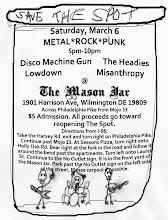

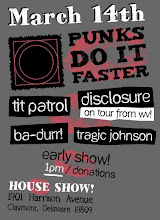
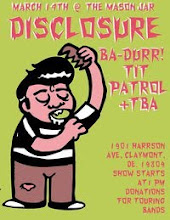
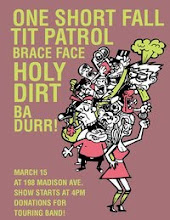

















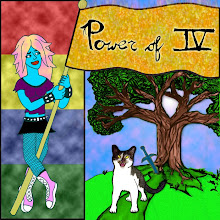










































































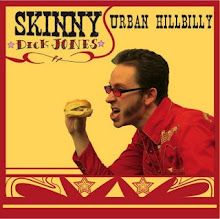




2 comments:
PEPSI GENERATION !
A truly tasty Generation indeed... Gen Z would be the Red Bull Generation.
Post a Comment